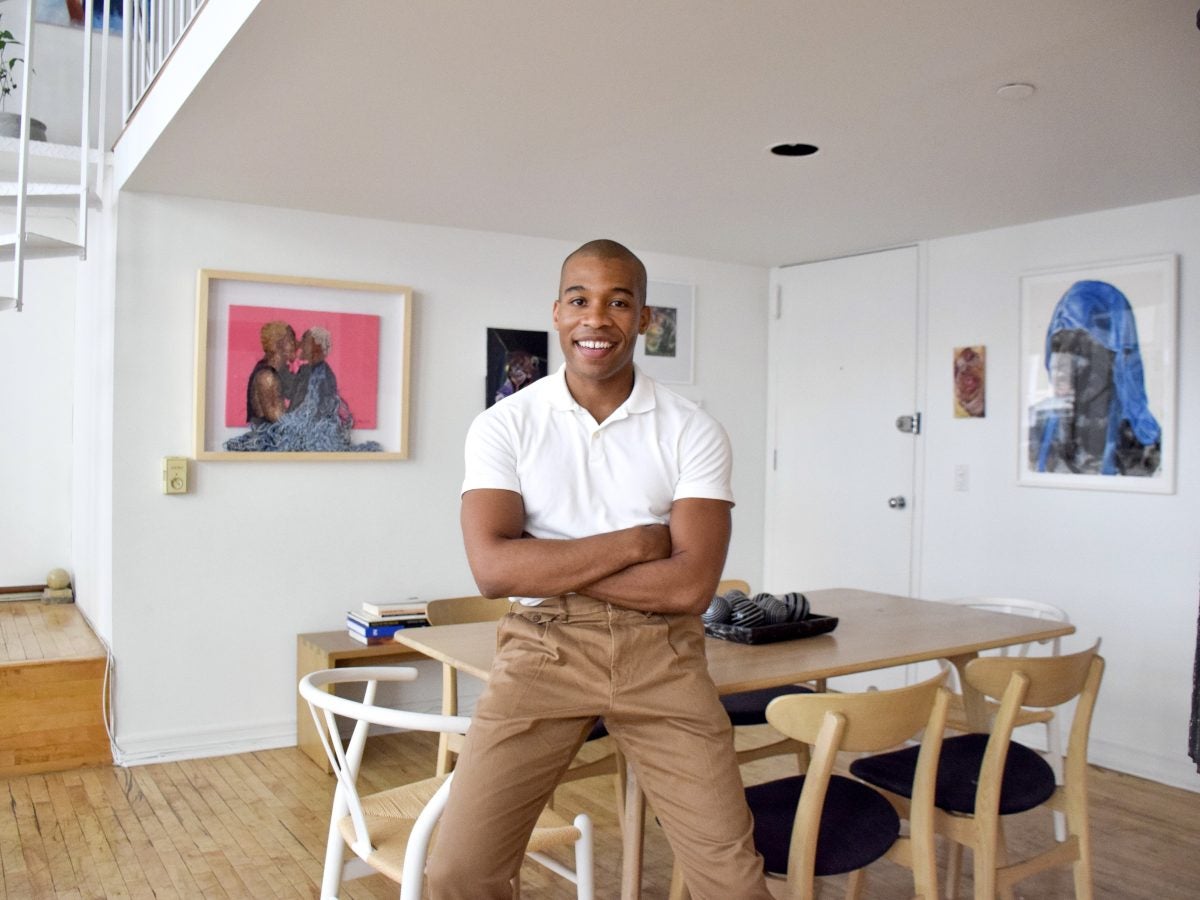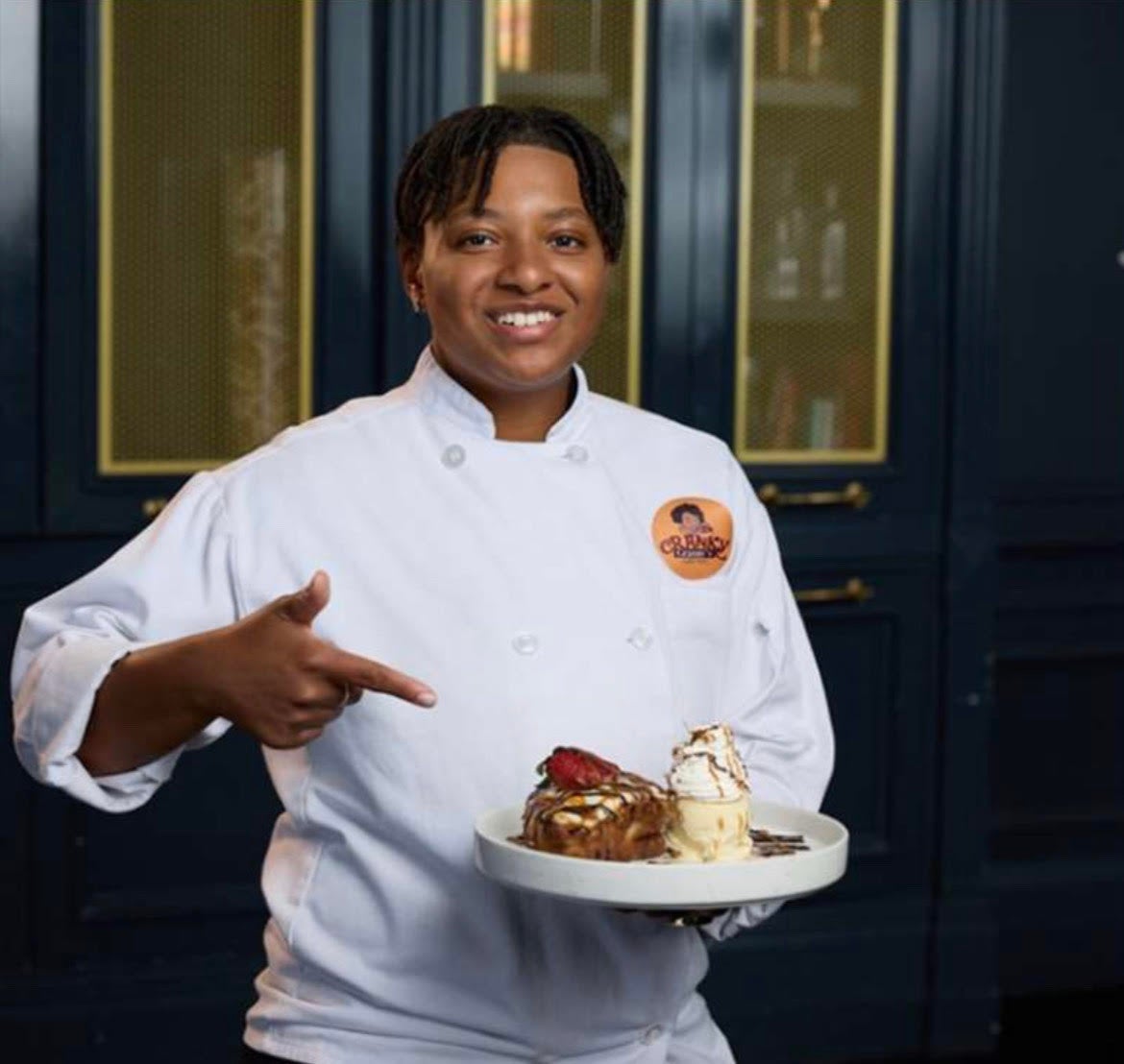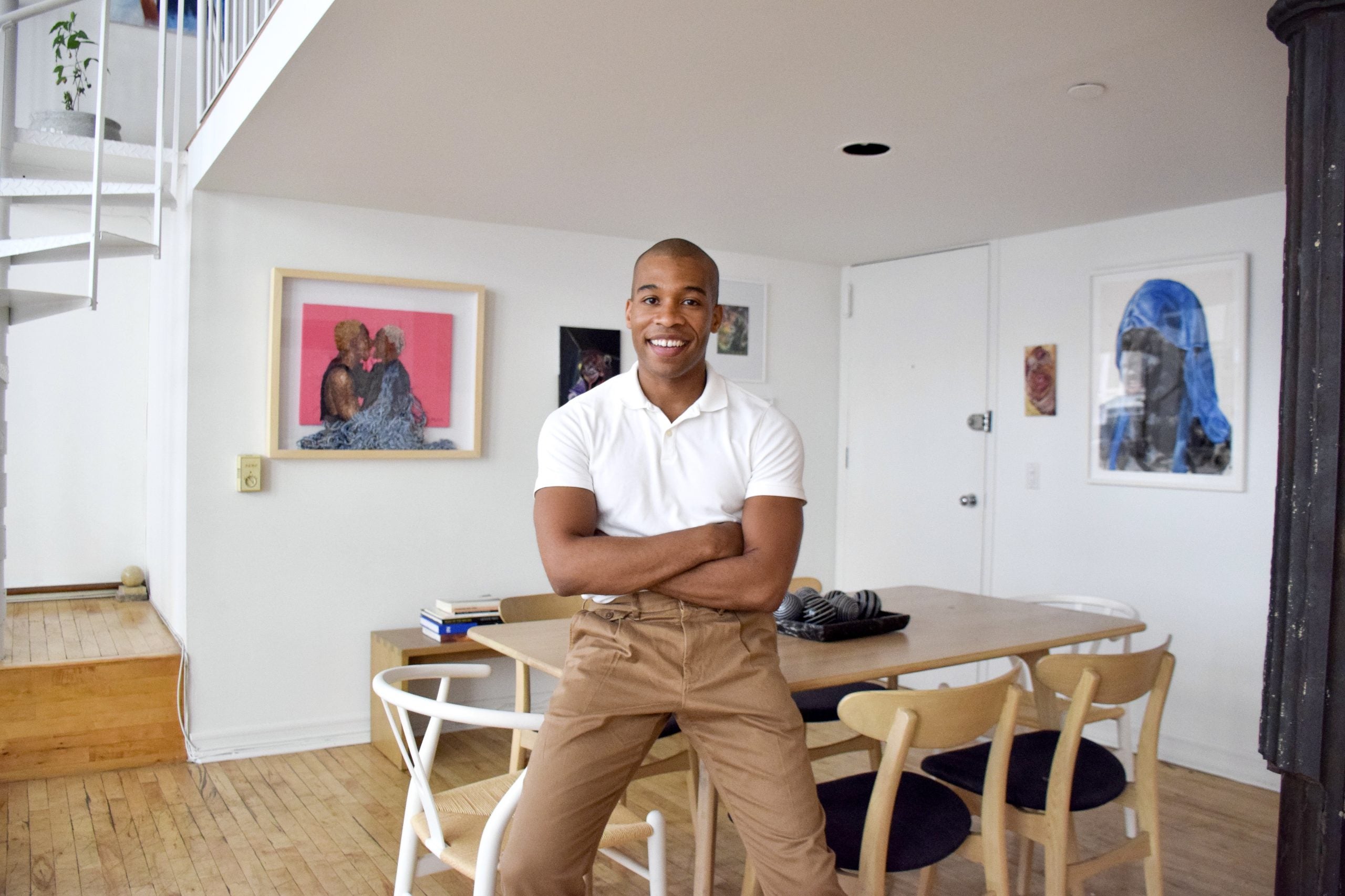
Every June, we celebrate Pride Month—a dedicated time to honor the LGBTQIA+ community and their achievements in the ongoing fight for equal rights. As we reflect on the history of the gay rights movement, celebrate the diversity within the LGBTQIA+ community, and raise awareness of the ongoing challenges faced, we also recognize the profound significance of Pride Month for Black LGBTQIA+ individuals who often face the challenges of racism within the LGBTQIA+ community and homophobia within their racial communities.
The intersection of identities underscores the necessity of amplifying, advocating, and celebrating the accomplishments of our Black LGBTQIA+ family year-round. These four LGBTQIA+ entrepreneurs are mobilizing community activism, creating fair and inclusive workplaces, expanding the art canon, and innovating new culinary genres.
James Felton Keith (he/him), Founder and CEO at InclusionScore Companies
James Felton Keith’s portfolio is as diverse as his interests. He’s a Harvard-trained economist, author, speaker, and engineer with consulting experience at top companies such as Lear Corporation, DaimlerChrysler, and Procter & Gamble. And that’s merely a fraction of his vitae.
In 2017, the Tuskegee alum made history as the first Black LGBTQ candidate to run for Federal Office in the United States with his bid for the U.S. House representing Harlem. If ‘Detroit hustles harder‘ embodies the spirit of his hometown, Keith exemplifies its relentless drive and determination.

Most recently, the pioneering political figure and passionate advocate for diversity and inclusion, has focused his expertise on the DEI space. “I’ve created dozens of jobs for Queer People of Color and others through every institution that I’ve founded as well as institutions that I’ve worked for,” he said in a 2020 candidate profile. “I’ve hired LGBTQ people in South Africa, China, Canada, The USA and Israel over the years.”
Keith, who identifies as bisexual, is the founder and CEO of InclusionScore, a company that helps organizations improve their DEI practices, measure progress, and create more inclusive workplaces. By combining DEI expertise with innovative approaches like certification and insurance incentives, InclusionScore aims to drive meaningful change in how businesses approach diversity and inclusion.
His journey is a testament to the impact of dedicated and innovative leadership on fostering inclusivity in the corporate world.
Jordyn Jay (she/her), Founder and Executive Director of the Black Trans Femmes in the Arts Collective (BTFA)
Jordyn Jay is a culture shifter. As the founder and executive director of the Black Trans Femmes in the Arts Collective (BTFA), the Brooklyn-based community organizer and arts advocate creates spaces and opportunities for Black trans femme artists to gain visibility and reach wider audiences with their work. Before challenging paradigms and elevating marginalized LGBTQIA+ voices, Jordyn Jay had to do that work for herself.

Growing up in Jacksonville, Florida, in a strict and conservative environment, she didn’t see people who reflected who she knew she was and wanted to be. The lack of representation led to feelings of isolation and invisibility until she found a space where she could fully exist. “It wasn’t until I discovered theater that I felt comfortable being myself. I learned that I could express different parts of my personality by portraying different characters onstage. Not only was I accepted, but I was lauded for it,” she told ESSENCE.
Jordyn Jay created the change she wanted to see in the world. BTFA, her community-focused non-profit, mobilizes resources to support artists assigned male at birth who now identify somewhere under the femme umbrella. The organization offers programming that centers and highlights Black trans artists, executive produces their work, and provides physical space for them to create.
Through BTFA, she is ensuring that the next generation of Black trans and queer youth can see themselves, feel supported, and know that their future is full of possibilities.
Sianni Dean (she/her), Founder of Cranky Granny’s Sweet Rolls
Sianni Dean, the creative force behind Cranky Granny’s Sweet Rolls, is not just a baker, but a visionary. Her menu, a fusion of traditional desserts and innovative flavors, is a testament to her commitment to quality and creativity. With flavors ranging from delectable Peach Cobbler to the tantalizing Churro Cinnamon, Cranky Granny’s has captivated patrons, cementing its status as an Austin fan-favorite.

But Dean’s entrepreneurial journey hasn’t always been sweet. A few years ago, just as her business began to boom, she was unexpectedly evicted from her rental space. But, rather than dwell on the setback, her response was swift and pragmatic. “I knew I didn’t do anything wrong. I didn’t bring any disruptions to the space, and my rent was paid every month on time,” she explained to ESSENCE. “I knew this was a ‘them problem.'” That resilient attitude extends beyond business.
As an LGBTQ-identifying Black woman, Dean learned to navigate familial and societal misconceptions with resolve: “I’m really good at ignoring stuff. I’m just not feeding into whatever somebody else wants to make their narrative about me.” Her ability to persevere through adversity underscores her business philosophy, transforming challenges into opportunities for growth and empowerment.
Sianni Dean’s accomplishments have not gone unnoticed. Pepsi awarded Cranky Granny’s Sweet Rolls one of the best Black-owned restaurants in the country. Additionally, they debuted at several restaurants at MGM Grand in Las Vegas this year, including a unique Bourbon Peach Cobbler French Toast flavor over Super Bowl weekend.
Dean’s resilience and dedication to her craft has made Cranky Granny’s Sweet Rolls a local foodie fan favorite and a rising star on the national culinary scene.
Phillip Collins (he/him), Founder of Good Black Art
The ability of art to transcend space and time is owed to its inherent simplicity, offering a blank canvas for artists to color in their unique experiences, cultural backgrounds, and personal narratives. Visual art captures emotions and translates perspectives in ways that defy language.
Phillip Collins is a lover of art. However, as an art collector and queer Black man, he grew frustrated by the limitations of the buyer’s market. “I thought, where is the art that reflects my lived experience and the experiences of my community?” he recalls. In 2021, Collins created the answer to his question with his startup, Good Black Art.

Good Black Art is a full-service, tech-enabled platform that creates an ecosystem granting Black artists access to the traditionally gatekept art world. Drawing from his background as a former marketing executive for major global brands, Collins designed the platform to provide comprehensive support—from booking exhibitions to public relations. It stands as the pioneering tech platform of its kind, offering buyers the opportunity to explore and purchase artworks directly through the Good Black Art site.
As Good Black Art continues to thrive, Collins finds fulfillment in the community it cultivates. “I wanted to communicate who I am and where I want to go, building connections within my community,” he shared with ESSENCE in an earlier interview.
Join us in celebrating these LGBTQIA+ leaders, paving the way for a more inclusive society.